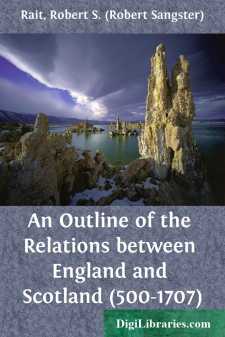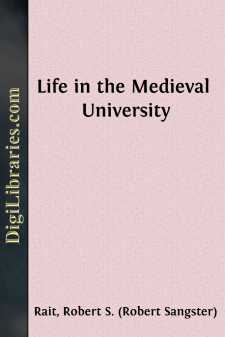Categories
- Antiques & Collectibles 13
- Architecture 36
- Art 48
- Bibles 22
- Biography & Autobiography 813
- Body, Mind & Spirit 141
- Business & Economics 28
- Children's Books 12
- Children's Fiction 9
- Computers 4
- Cooking 94
- Crafts & Hobbies 4
- Drama 346
- Education 46
- Family & Relationships 57
- Fiction 11826
- Games 19
- Gardening 17
- Health & Fitness 34
- History 1377
- House & Home 1
- Humor 147
- Juvenile Fiction 1873
- Juvenile Nonfiction 202
- Language Arts & Disciplines 88
- Law 16
- Literary Collections 686
- Literary Criticism 179
- Mathematics 13
- Medical 41
- Music 40
- Nature 179
- Non-Classifiable 1768
- Performing Arts 7
- Periodicals 1453
- Philosophy 64
- Photography 2
- Poetry 896
- Political Science 203
- Psychology 42
- Reference 154
- Religion 513
- Science 126
- Self-Help 83
- Social Science 81
- Sports & Recreation 34
- Study Aids 3
- Technology & Engineering 59
- Transportation 23
- Travel 463
- True Crime 29
Robert S. (Robert Sangster) Rait
Robert Sangster Rait (1874–1936) was a Scottish historian and academic known for his expertise in Scottish and British history. He served as the Historiographer Royal for Scotland and was appointed Principal of the University of Glasgow in 1929. Rait authored several historical works, including "Five Stuart Princesses" and "The Parliaments of Scotland". His contributions focused on the political and social history of Scotland, and he was highly regarded for his insightful analysis of constitutional developments.
Author's Books:
Sort by:
INTRODUCTION The present volume has been published with two main objects. The writer has attempted to exhibit, in outline, the leading features of the international history of the two countries which, in 1707, became the United Kingdom. Relations with England form a large part, and the heroic part, of Scottish history, relations with Scotland a very much smaller part of English history. The result has...
more...
INTRODUCTORY "A Clerk ther was of Oxenford also,That unto logik hadde longe y-goAs lene was his hors as is a rake,And he was not right fat, I undertake;But loked holwe, and therto soberly,Ful thredbar was his overest courtepy,For he had geten him yet no benefyce,Ne was so worldly for to have offyce.For him was lever have at his beddes heedTwenty bokes, clad in blak or reed,Of Aristotle and his...
more...



